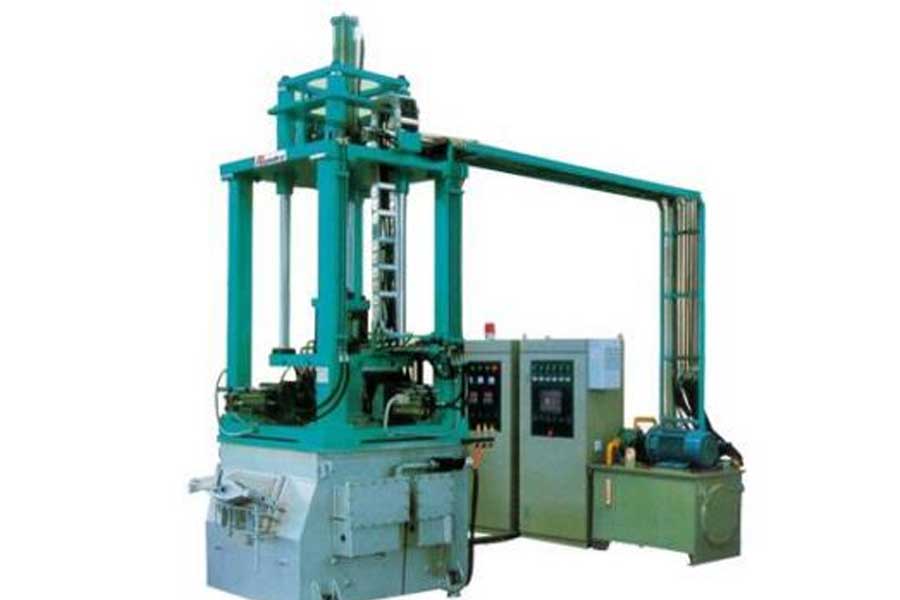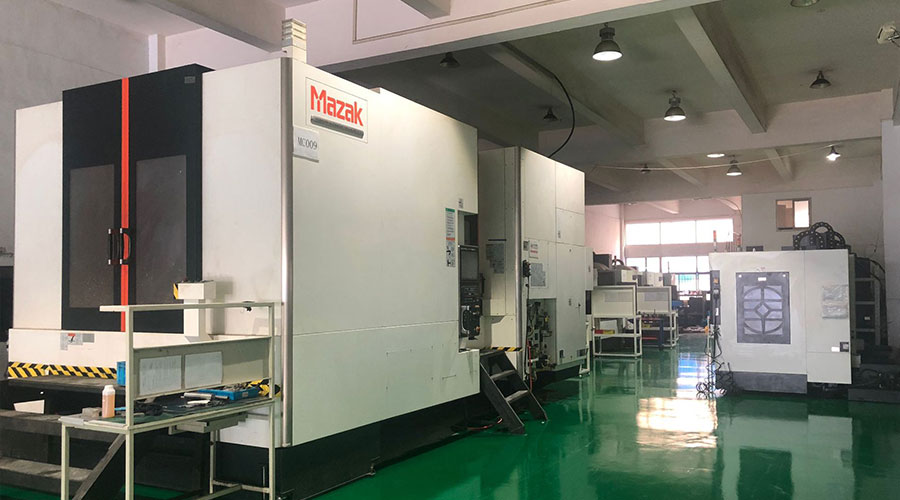Since its birth, low-pressure casting technology has developed rapidly in various industries by virtue of its unique characteristics. We see aluminum alloy molded products on the market are all made of low-pressure casting. Casting products have the characteristics of high quality and complex process modeling. Today I will talk to the readers present about some knowledge about low-pressure casting.
To understand the technology of low-pressure casting machine, you must first know its principle and process characteristics; low-pressure casting is to obtain castings by filling and solidifying the fluid in the mold under the action of pressure extrusion. In addition to the low-pressure casting process, there are gravity casting and pressure casting methods. The low-pressure casting method minds the difference between the above two, whether it is pressure or process flow. The products produced by this process have high mechanical toughness, and are especially suitable for casting objects with complex wall structures, such as aluminum alloy products, cast aluminum alloy parts, variable shapes, light weight, flexible component combination, and wide application In our daily production and life.

Nowadays, the aluminum alloy low-pressure casting industry has almost become an indispensable process in aluminum alloy casting. The principle of low pressure casting is actually very simple, a few words can explain it. Let’s take aluminum alloy as an example. In a sealed container, dry compressed air is first injected. Under the action, the cavity of the casting is maintained. After the solidification is completed, the pressure on the liquid surface is released, and the remaining molten aluminum returns to the crucible, and the solidified molten aluminum forms the desired casting in the mold. Because the required pressure is low, it is called low pressure casting.
During the low pressure casting process, due to the participation of the filling gas, under the action of the pressure, the fluid filling can be kept stable, and a casting with a clear outline can be obtained. The filling speed can be controlled according to the casting structure, casting material and other factors to prevent the aluminum liquid flow from scouring and entraining the cavity and core. Products formed by low pressure castings have better mechanical properties. Compared with pressure casting, the low-pressure casting process structure is relatively simple and reliable, with low capital investment and high yield. After design improvements, it is easy to realize mechanization and automation, and is suitable for large-scale popularization.
Structural process design features:
We still use aluminum alloy as an example. Die casting machine technology During casting, molten aluminum solidifies from top to bottom, so casting feeding should be from bottom to top, and finally realized through the runner. Therefore, the arrangement of the position of the casting in the mold, the determination of the machining allowance and the process allowance, the placement of the cold iron and the use of the heating rod, etc. This schematic diagram crucible; riser pipe; aluminum liquid; air inlet pipe; sealing cover; gate ; Cavity; mold—should ensure that the castings are solidified in order from top to bottom with the gate as the center, and from far to near. The gate is generally opened at the thickness of the casting wall and the hot joint. For castings with relatively uniform wall thickness, different machining allowances or process allowances are used to increase the wall thickness of the castings uniformly in the up and down directions.
For castings with uneven wall thickness and complex structure, if sand molds are used, the solidification sequence of castings shall be controlled by placing cold iron; if metal molds are used, different metal mold thicknesses, insulation cotton, and electric heating rods can be used. To control and adjust the cooling rate of castings.
For the hot spots of some castings, compressed air or cooling water can be used to control the cooling of the mold at that location. For thick-walled castings with a large area or thin-walled castings with uniform thickness, multiple internal runners can be used. In order to prevent the nozzle from condensing, a heating device can be installed at the end of the riser pipe.
Mold exhaust
Because the upper part of the low pressure mold is often closed, it is not easy to vent. When the venting capacity of the mold is insufficient, a back pressure is formed in the cavity, which hinders the smooth filling of the molten aluminum, and is likely to cause defects such as insufficient pouring or air entrapment. For sand molds, molding sand with good air permeability is often used; in addition, a certain number of impermeable small holes can be drilled on the top of the sand mold and away from the surface of the cavity.
For metal molds, vent grooves can be opened on the parting surface and top, or vent plugs can be installed on the mold wall. The depth of the vent groove should be controlled. In addition, the ejector can be used for exhaust.
Link to this article:Briefly describe the technical process of aluminum alloy low-pressure casting
Reprint Statement: If there are no special instructions, all articles on this site are original. Please indicate the source for reprinting:https://www.cncmachiningptj.com/,thanks!
 Sheet metal, beryllium, carbon steel, magnesium, 3D printing, precision CNC machining services for heavy equipment, construction, agriculture and hydraulic industries. Suitable for plastics and rare alloys machining. It can turn parts up to 15.7 inches in diameter. Processes include swiss machining,broaching, turning, milling, boring and threading. It also provides metal polishing, painting, surface grinding and shaft straightening services. The production range(include aluminum die casting and zinc die casting) is up to 50,000 pieces. Suitable for screw, coupling, bearing, pump, gearbox housing, drum dryer and rotary feed valve applications.PTJ will strategize with you to provide the most cost-effective services to help you reach your target,Welcome to Contact us ( [email protected] ) directly for your new project.
Sheet metal, beryllium, carbon steel, magnesium, 3D printing, precision CNC machining services for heavy equipment, construction, agriculture and hydraulic industries. Suitable for plastics and rare alloys machining. It can turn parts up to 15.7 inches in diameter. Processes include swiss machining,broaching, turning, milling, boring and threading. It also provides metal polishing, painting, surface grinding and shaft straightening services. The production range(include aluminum die casting and zinc die casting) is up to 50,000 pieces. Suitable for screw, coupling, bearing, pump, gearbox housing, drum dryer and rotary feed valve applications.PTJ will strategize with you to provide the most cost-effective services to help you reach your target,Welcome to Contact us ( [email protected] ) directly for your new project.
Link to this article:Briefly describe the technical process of aluminum alloy low-pressure casting
Reprint Statement: If there are no special instructions, all articles on this site are original. Please indicate the source for reprinting.:Cut Wiki,Thanks!^^
